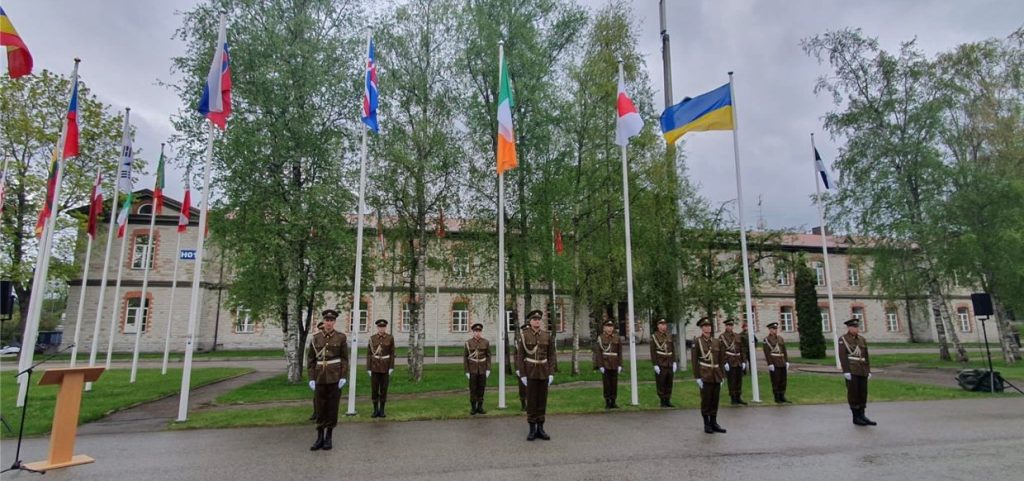NATO’s largest cyber defense exercise, Locked Shields, recently took place in Tallinn, Estonia, drawing participants from over 40 countries, including Ukraine. The exercise, organized by NATO’s CCDOE and the National Cyber Security Coordination Center of Ukraine, involved over 4,000 representatives from various nations. Participants faced challenges that replicated real-world complexities of cyber defense, including critical thinking, strategic decision-making, legal aspects, crisis communication, and strategic planning. This year’s exercise focused on scenarios that required quick cognitive thinking, adaptation to new technologies, and constant communication. Participants were divided into two teams, with one team tasked with defending the fictional state of Berylia from complex cyberattacks planned by the opposing aggressor team.
Ukraine’s involvement in Locked Shields comes at a time when the country has been a frequent target of cyberattacks, particularly from Russia. In December 2023, Ukraine’s leading telecommunications provider, Kyivstar, experienced a massive cyberattack that resulted in internet and network outages, as well as issues with air raid alerts. The Security Service of Ukraine (SBU) linked the attack to SandWorm, a unit of Russia’s military intelligence agency, the GRU. This incident is just one example of Russia’s ongoing cyber warfare against Ukraine, as Moscow continues to target Ukraine’s digital infrastructure throughout the conflict. Last year, Ukraine officially joined the CCDOE, further solidifying its commitment to cyber defense and cooperation with international partners.
Locked Shields provides an opportunity for participants to enhance their skills in defending against sophisticated cyber threats and practicing strategic decision-making in a high-pressure environment. The exercise focuses on the evolving nature of cyber warfare and the need for constant adaptation and communication. The scenario-based challenges presented during Locked Shields aim to simulate real-world cyber defense situations, allowing participants to test their abilities and collaborate with others from different countries. By participating in exercises like Locked Shields, countries like Ukraine can strengthen their cyber defense capabilities and enhance cooperation with NATO and other international partners in combating cyber threats.
The involvement of over 4,000 representatives from various countries in Locked Shields highlights the importance of international cooperation in addressing cybersecurity challenges. Cyberattacks have become increasingly sophisticated and pose a significant threat to national security and critical infrastructure. By participating in exercises like Locked Shields, countries can exchange expertise, share best practices, and enhance their preparedness for cyber threats. The collaboration between NATO, the CCDOE, and national cyber security agencies like Ukraine’s National Cyber Security Coordination Center allows for a comprehensive approach to cyber defense, combining technical expertise, strategic planning, and crisis management capabilities.
As cyber threats continue to evolve, it is essential for countries to invest in cybersecurity measures and build resilient defense mechanisms. Exercises like Locked Shields serve as valuable training opportunities for cyber professionals to hone their skills and test their capabilities in a simulated environment. By preparing for various cyber scenarios and practicing coordinated responses, countries can better protect their digital infrastructure and mitigate the impact of cyberattacks. The participation of Ukraine in Locked Shields demonstrates the country’s commitment to strengthening its cyber defense capabilities and collaborating with international partners in addressing cybersecurity challenges. Together, through continued cooperation and shared expertise, countries can better defend against the growing threat of cyber warfare.


